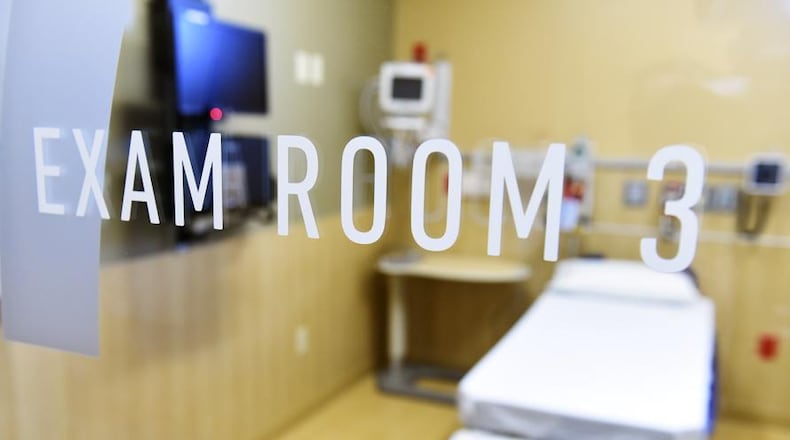“While the cases still remain low among that group, they are rising,” Knecht said. As whole, the cancer incidence rate has been decreasing, but that downward trend is mostly in older adults.
The rate of people being diagnosed with colon or rectal cancer each year has dropped overall since the mid-1980s, according to the American Cancer Society, mainly because more people are getting screened and changing their lifestyle-related risk factors.
From 2011 to 2019, incidence rates dropped by about 1% each year, mostly in older adults. In people younger than 50, rates have been increasing by 1% to 2% a year since the mid-1990s.
“There is not a clear causative agent there at this time,” Knecht said.
Excluding skin cancers, colorectal cancer is the third most common cancer diagnosed in both men and women in the U.S., impacting approximately 1 in 23 men and 1 in 26 women, according to the American Cancer Society. The American Cancer Society’s estimates for the number of colorectal cancers in the U.S. for 2023 are 106,970 for new cases of colon cancer and 46,050 new cases of rectal cancer.
Colorectal cancer is the third leading cause of cancer-related deaths in both men and women, and it’s the second most common cause of cancer deaths when numbers for men and women are combined. The American Cancer Society estimates it will cause about 52,550 deaths during 2023.
Doctors have historically recommended screenings start at the age of 50, but that is no longer the case, Knecht said.
“It is 45 that you should start getting screened for colon cancer,” Knecht said. There are multiple screening options available, and Knecht recommended patients speak with their physicians or primary care providers about which would be the best option. Options include colonoscopies or stool DNA testing.
One of the things doctors look for when screening for colon cancer are growth of cells, called polyps, which could turn into cancer. Most colon polyps are not dangerous, but they have the potential to turn into cancer, so doctors typically remove and test them.
Knecht said screenings can help catch those polyps that are at risk of developing into cancer, reducing risks that the population gets colon cancer.
“Colonoscopies not only catch cancer at earlier stages, but because a lot of colon cancer develops from a polyp—which is a precancerous legion—colonoscopies can actually remove those polyps and decrease the rate of developing cancer,” Knecht said.
Dr. Joseph Allen, who specializes in family medicine at Premier Health, said individuals who also have a family history of colon or rectal cancer with an immediate family, such as a parent or sibling, may also need to start undergoing screenings before the age of 45.
Allen said individuals who have a first-degree relative with a history of colorectal cancer should start screenings approximately 10 years before the age it was diagnosed with the relative. Such as, if a parent or sibling was diagnosed at age 50 with colon cancer, any immediate relatives should start getting screened for colon cancer at age 40. Other diseases like Crohn’s disease may make an individual more susceptible to colon cancer, as well.
Allen also suggested that one of the reasons doctors are seeing more cancer rates among younger adults is due to better screening tests being developed and uncovering those cancers earlier.
“We can identify it earlier,” Allen said. “We can essentially prevent that cancer from occurring.”
About the Author

